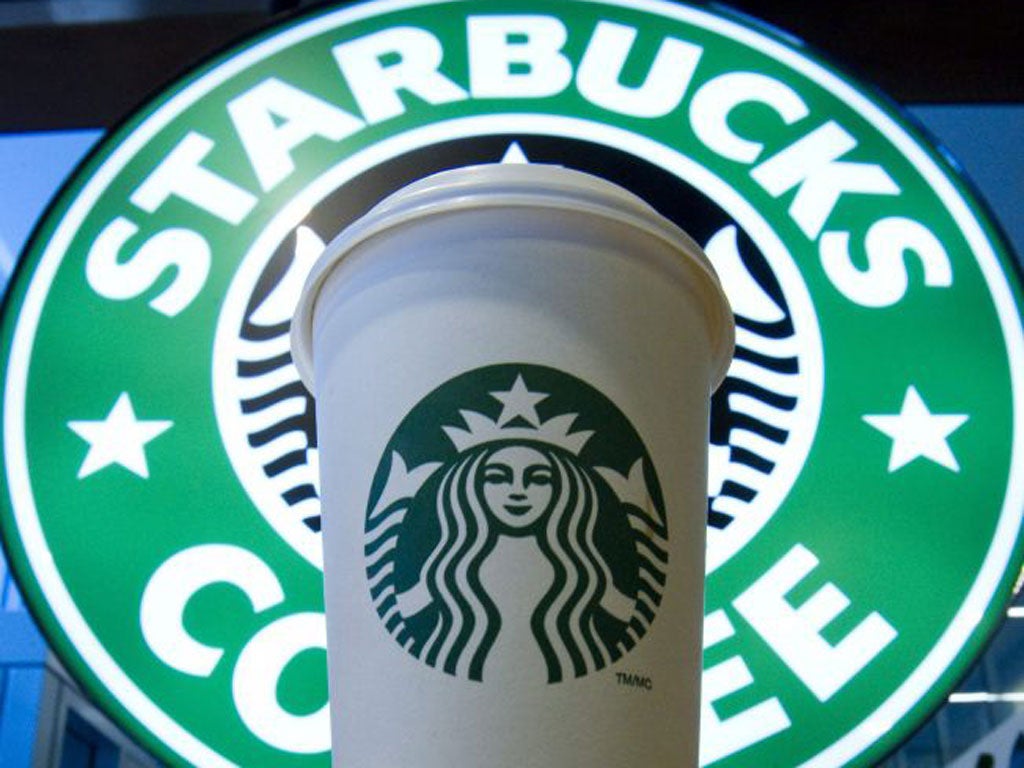Sketch: Getting to the bottom of Starbucks' tax arrangements is a study in exasperation


Your support helps us to tell the story
From reproductive rights to climate change to Big Tech, The Independent is on the ground when the story is developing. Whether it's investigating the financials of Elon Musk's pro-Trump PAC or producing our latest documentary, 'The A Word', which shines a light on the American women fighting for reproductive rights, we know how important it is to parse out the facts from the messaging.
At such a critical moment in US history, we need reporters on the ground. Your donation allows us to keep sending journalists to speak to both sides of the story.
The Independent is trusted by Americans across the entire political spectrum. And unlike many other quality news outlets, we choose not to lock Americans out of our reporting and analysis with paywalls. We believe quality journalism should be available to everyone, paid for by those who can afford it.
Your support makes all the difference.If nothing else the questioning of the country’s top taxperson was a study in exasperation today. Understandably, the Commons Public Accounts Committee was eager, desperate even, to find out from Lin Homer, HMRC’s chief executive, how it was that Starbucks managed to pay a trifling £8.6million in corporation tax on UK sales of - wait for it - £398million.
The first problem was that HMRC does not discuss individual taxpayers, if a global giant with 600 outlets in Britain alone, can be so described, meaning that Committee chairman Labour’s Margaret Hodge took to referring it as “the company we are not allowed to name” Ms Hodge, it must be said, does exasperation extremely well - a strangled, incredulous “ha” here, a tight little shrug of her elegant shoulders there, as if her whole body was convulsed by frustration. “You can’t say that,” she said in response to one of Ms Homer’s blander answers.” She can,” the equally exasperated Tory Richard Bacon told her. “She just did.”
Last month the chain’s finance chief told the Financial Times that “I look forward” to it paying more tax. Had he harboured a fervent desire to hand billions to the Revenue but had been prevented by hidden forces? No it was merely that they had lost a packet on a mistaken “land grab” in its early days - and had to pay a mysterious six percent “royalty” to the Netherlands regional HQ.
The Bacon-Hodge duo, who work a kind of cross-party hard cop, hard cop routine, were unimpressed. Saying - without naming names, of course - Bacon said it “beggars belief that such a a large entity can pay so little in corporation tax” only, it seemed, possible because the company had been “architected” that way. The syntax was terrible but the meaning clear.
So exasperated was the committee that at times it rode roughshod over the answers from the - to be fair, unintimidated - Ms Homer, who at one point pleaded to get a word in edgeways. She insisted that HMRC was working well within agreed rules and procedures. In that case, for the public, said Bacon “you’re making a really bad job of explaining it.”
Starbucks is only one example of the low tax multinationals reeled off by Ms Hodge today, including Google, Amazon, Asda, Facebook, Intel, Kraft, Coca Cola. But it is the first expected to appear before Ms Hodge next week. You can only wish them luck.
Join our commenting forum
Join thought-provoking conversations, follow other Independent readers and see their replies
Comments